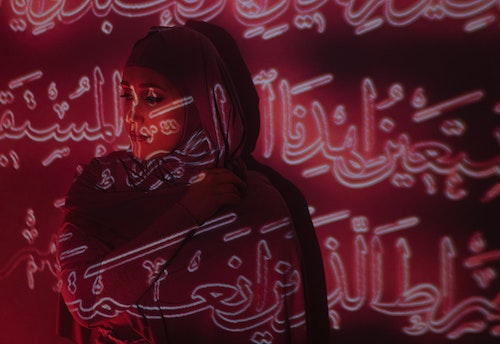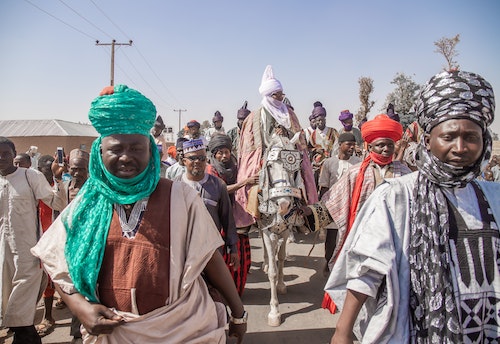The Most Widely Spoken Languages of Africa: A Concise Guide
Have you ever stopped to think how many “languages of Africa” are there? With 2,000 languages spoken on the African continent, it’s clear that Africa is one of the most linguistically diverse regions in the world. But don’t worry. If you’re thinking about traveling around the African continent for tourism or business, you won’t need to learn all 2,000 languages.
→Sign Up Now: Free Trial Lesson: Learn the Languages of Africa With Native Teachers!←
Just focus on the five most common languages spoken in Africa, and you’ll be able to communicate with most people on this fascinating continent. Here is an overview of the 5 most common languages of Africa.
Arabic Language
With 150 million speakers in countries such as Egypt, Sudan, Algeria and Morocco, Arabic is one of the most widely spoken languages in Africa, and it’s also one of the oldest languages on the continent.
Arabic is a Semitic language, meaning that it shares a common ancestry with Hebrew and Aramaic. It has been written in a variety of scripts over the years, but is currently written using a modified version of the Latin alphabet.
A curious fact about Arabic
One interesting feature of Arabic is that its grammar is vastly different from Indo-European languages like English and French.
In this language, words are created by concatenating a series of three-consonant roots, which define the underlying meaning of the word. Then, vowels, prefixes, and suffixes are added to that root to convey the final desired inflection of meaning.

One of the best examples of this involves the word “insân” (إنسان), which means “human”, and is formed from the root N-S-Y (ن س ي). Interestingly, the same root is used in the verb “nisyâh” (نسى), “to forget”, suggesting that forgetfulness is an inherently human trait.
3 Survival Phrases in Arabic
– Hello: مرحبا (marḥaba)
– Goodbye: وداعا (wa-dāʿa)
– Thank you: شكرا (shukran)
Swahili Language
Swahili is the most widely spoken language in East Africa, with an estimated 100 million speakers across 20 countries such as Kenya, Tanzania, Uganda, the Democratic Republic of Congo, and Mozambique. It’s also one of the official languages of the African Union.
Swahili is a Bantu language, which means that it’s closely related to languages like Zulu, Xhosa, and Lingala. It’s written using the Latin alphabet, with a few additional symbols to represent certain sounds that don’t exist in the Latin alphabet.
One of the most interesting things about Swahili is that it has been heavily influenced by Arabic and Hindi. This is because, historically, Swahili was the language of trade along the East African coast, and so merchants from all over the world would come to East Africa and learn Swahili in order to do business.
This mixing of languages has led to a unique dialect that’s unlike any other language in the world as it’s very liberal when it comes to the use of loanwords. For example, the word “safi” (سافي), meaning “clean”, is an Arabic loanword, while the word “chai” (چائے), meaning “tea”, is a Hindi word.
A curious fact about Swahili
Swahili is one of the few languages in the world that uses the same word for “blue” and “green”. The word is “samawati” (سماواتي), which comes from the Arabic word “samāwāt”, meaning “heavens”.
3 Survival Phrases in Swahili
– Excuse me: Samahani
– I’m sorry: Pole sana
– Help!: Tafadhali nisaidie!
Hausa Language
With an estimated 50 million speakers across Nigeria, Ghana, Cameroon, Sudan, and Chad, Hausa is another one of the most widely spoken languages in Africa.
It is also a member of the Afro-Asiatic family of languages, which means that it’s related to languages like Hebrew, Arabic, and Amharic.

One interesting feature of Hausa is that it has a very rich oral tradition. This is because, historically, Hausa society was largely illiterate, and so stories were passed down from generation to generation through the spoken word.
An example of this is the traditional tale Maimuna, a twisty fable about the importance of family and the values of the Hausa people.
A curious fact about Hausa
Hausa has two different words for “yes”: na’am (نعم) and ee (يە). The former is used when agreeing with a positive statement, while the latter is used when agreeing with a negative statement.
3 Survival Phrases in Hausa:
– Do you speak English? : Kar kuce magana Englis?
– I don’t understand: Ban fahimci haka ba
– Can you repeat that? : Zaku iya sake magana a haka?
Yoruba Language
Yoruba is a language spoken by the Yoruba people, who are native to southwestern Nigeria and southern Benin. It’s estimated that there are around 30 million Yoruba speakers in total.
Yoruba is a member of the Niger-Congo family of languages, which means that it’s related to languages like Igbo, Hausa, and Zulu.
Something you should know about Yoruba is that it has a tonal system, which means that words can have different meanings depending on the tone in which they’re spoken.
For example, the word “bí” (meaning “come”) can have four different meanings depending on the tone it’s spoken in:
– Bí (high tone) means “come”
– Bi (low tone) means “to enter”
– Bí (rising tone) means “to go out”
– Bí (falling tone) means “to come back”.
A curious fact about Yoruba:
The Yoruba language is one of the few languages in the world that doesn’t have a word for “hello”. Instead, speakers will say “Òle o” (meaning “good day”), “Àmín” (meaning “peace”), or “E ku isé” (meaning “how are you?”).
3 Survival Phrases in Yoruba:
– My name is… : …mi o ni
– Where are you from? : Àwon wo ni ipinle ___?
– What’s your name? : Ki won si r’ àyè mi?
Igbo Language
Igbo is a language spoken by the Igbo people, who are native to southeastern Nigeria. As of 2022, there are an estimated 18 million Igbo speakers.
Igbo is a tonal language with two distinctive tones, high and low, which can change the meaning of a word. For example, the word “agbalị” can mean either “to eat” or “to fight”, depending on the tone.
Igbo does not have gender or plural pronouns and has a relatively simple grammar system. Unlike English, which follows a subject-verb-object structure, word order in Igbo is typically subject-object-verb. For instance, the Igbo translation of “The boy is reading a book” would be “O nwoke a na asụsụ onye”, which literally translates as “The boy a book is reading”.
A curious fact about Igbo
When it comes to naming children, Igbo-speaking parents often choose names based on the day of the week or the time their child was born, with each day having its own special name.

For example, a child born on Sunday might be named “Chukwu” (which means “God”), while a child born in the morning might be named “Okechukwu” (which means “born during daylight”).
3 Survival Phrases in Igbo
-Where’s the bathroom? -Enyi ka anyi?
-Can I see a menu? -Enyi ka anyi gosi akwukwo?
-I would like… -Enwere …
As you can see, every language spoken in Africa has its own unique features and history. No matter what language you choose to learn, studying any African language will give you a deeper understanding of the culture and history of the continent.
Would you like to take a personalized course in any of the languages mentioned in this article? (or any of the languages of Africa, for that matter!). At Listen & Learn, we offer private language classes taught by native-speaking, certified instructors.
→Sign Up Now: Free Trial Lesson: Learn the Languages of Africa With Native Teachers!←
Whether you want to study a widely spoken language such as Arabic, or a smaller dialect such as Tsonga, we’ll ensure you get a qualified teacher who can design a tailored lesson plan based on your needs and preferences.
Get in touch with us today to find out more!


